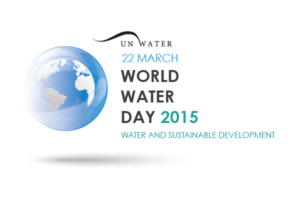 Flinders University ground water researchers are using World Water Day 2015 to promote the importance of Australia’s vast groundwater reserves.
Flinders University ground water researchers are using World Water Day 2015 to promote the importance of Australia’s vast groundwater reserves.
Since it was first declared in 1993, when the United Nations General Assembly marked 22 March as a “World Day for Water”, a new water theme is highlighted each year.
This year’s theme is Water and Sustainable Development, and researchers at Flinders’ National Centre for Groundwater Research and Training (NCGRT) are working hard to raise awareness.
Ninety seven per cent fresh water on Earth is groundwater, supplying half of the world’s drinking water and 43 per cent of the water used to irrigate crops.
However, groundwater depletion and pollution are enormous and demanding global issues – highlighted by UNESCO reports which show that global groundwater extraction is approaching 1000 km3/year (over 13 times the annual flow over the entire Niagara Falls) and showing no signs of slowing.
“It is the resource that sustains, but groundwater continues to be both a major challenge and opportunity for us in Australia and internationally, and will only become more valuable in the future,” said Professor Craig Simmons, Schultz Chair in the Environment at Flinders University and NCGRT Director.
Professor Simmons said he was particularly concerned by apparent public apathy caused by what he described as a ‘hydro-illogical cycle’.
That cycle, according to Professor Simmons, is a process of changing public perception which begins with drought, prompting public awareness, leading to concern and panic, but which, unfortunately (once rain returns), returns once again to apathy.
“There are many challenges we continue to face across water policy, management, research and education,” said Professor Simmons.
“I am concerned that we appear to have entered the apathy part of the ‘hydro-illogical cycle’, and this is a very dangerous place for us to be, especially with so many water challenges in Australia.”
Professor Simmons warned that time was running out for Australia to be ready for the beginning of the next ‘cycle’.
“The next drought is on its way, and it is a case of when and not if,” he said. “Vital ecosystems are supported by water, mining and energy production are linked with water, and our water resources face the potential to be impacted by climate change.
“We cannot be complacent. We must make sure that our water reform agenda does not wax and wane as droughts come and go or as political parties change.”
Professor Okke Batelaan, Strategic Professor of Hydro(geo)logy at Flinders University and Dean, School of the Environment, Flinders University, also called for increased awareness, and said people need to better understand how to manage water.
“We are doing a lot to raise awareness about water in the environment, conducting research related to groundwater and also working to better understand and manage water as part of an integrated, whole of water-cycle, approach,” said Professor Batelaan.
“Research projects in our School and the NCGRT involve partners from research agencies, universities, government and industry both in Australia and overseas, and many students are studying water related topics both in our undergraduate and postgraduate teaching programs, and doing Masters and PhD’s by research as well.
“We would encourage everyone to get involved in World Water Day and to think about how each and every one of us can make a difference. Water is the most precious thing we have and we must value and protect it for the generations to come.
“The opportunities to make a difference and have an impact continue to be enormous.”
In Australia, groundwater provides more than 30 per cent of Australia’s total water consumption and generates national economic activity worth in excess of $34 billion a year in support of agricultural, mining and industrial development.
Groundwater is front and centre in many of Australia’s pressing, contemporary national problems, including the implementation of the Murray-Darling Basin (MDB) Plan, securing the Great Artesian Basin, the role of groundwater in urban and rural water security, the impacts of unconventional gas and hydraulic fracturing on groundwater, mining and groundwater, proposals for the future development of Northern Australia, Australia’s agricultural competitiveness, and the impacts of climate change on groundwater.
To find out more about World Water Day, go to http://www.unwater.org/worldwaterday
More information about Flinders University’s groundwater and water research and training is at www.groundwater.com.au

